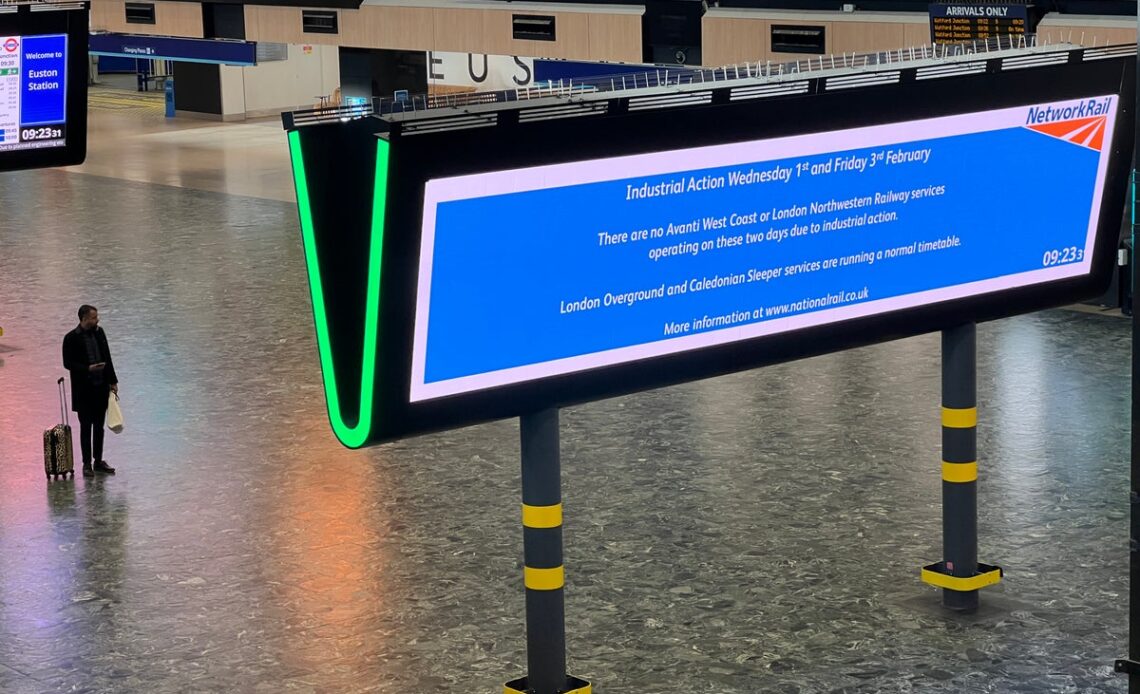Members of the RMT union working for 14 train operators are staging more walk-outs in the current round of strikes.
Since June 2022, national rail strikes in a tangle of disputes about pay, job security and working arrangements have caused problems for tens of millions of train passengers.
Since then, stoppages causing massive disruption for passengers have been called frequently.
These are the key questions and answers.
Who is striking when?
The main rail union, the RMT, has instructed all its members working for 14 train operators to strike on Thursday 30 March and Saturday 1 April.
The train firms are those contracted by the Department for Transport. They include the leading intercity operators:
- Avanti West Coast
- CrossCountry
- East Midlands Railway
- Great Western Railway
- LNER
- TransPennine Express
All the London commuter operators will also be hit:
- c2c
- Greater Anglia
- GTR (Gatwick Express, Great Northern, Southern, Thameslink)
- Southeastern
- South Western Railway
Operators focusing on the Midlands and north of England will be affected:
- Chiltern Railways
- Northern Trains
- West Midlands Trains
A planned strike that also brought in workers at Network Rail has been shelved while a ballot of RMT members takes place.
What will the effect be?
Passengers can expect normal service on:
- Caledonian Sleeper
- Grand Central
- Heathrow Express
- Hull Trains
- London Overground
- Lumo
- Merseyrail
- ScotRail
- Transport for Wales
Trains run by these companies are likely to be more crowded than normal on routes usually shared with train operators whose staff are striking, such as London-York-Newcastle-Edinburgh and Swansea-Cardiff-Newport.
The exact proportion of normal services will vary from one train operator to another. During the earlier Spring 2023 strikes, on Thursday 16 March and Saturday 18 March, around half the nation’s trains ran. The best performer was the London-south Essex operator, c2c, which ran a normal service.
On many intercity lines services were hourly, though with many early and late services cancelled.
Worst performers were Northern and TransPennine Express.
The Rail Delivery Group (RDG) says: “It is expected that nationally between 40 and 50 per cent of train services will run, but there will be wide variations across the network, with no services at all in some areas.
“It is likely that evening services on some lines will be affected on the days before each strike.“
Will…
Click Here to Read the Full Original Article at The Independent Travel…
